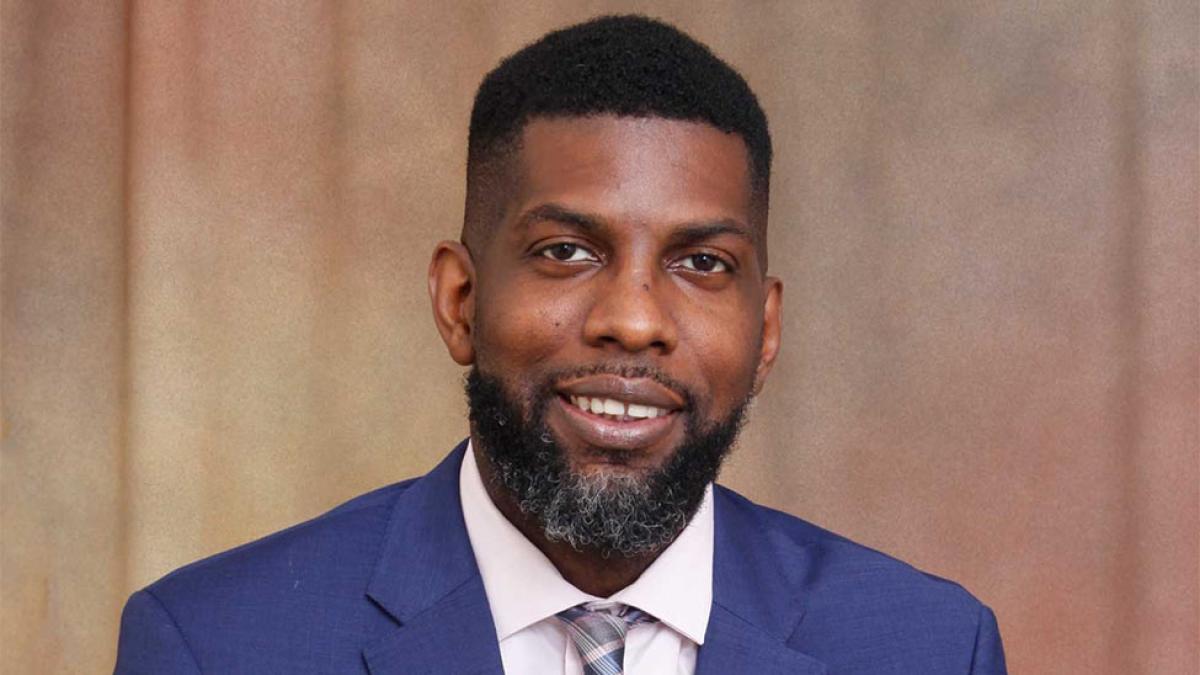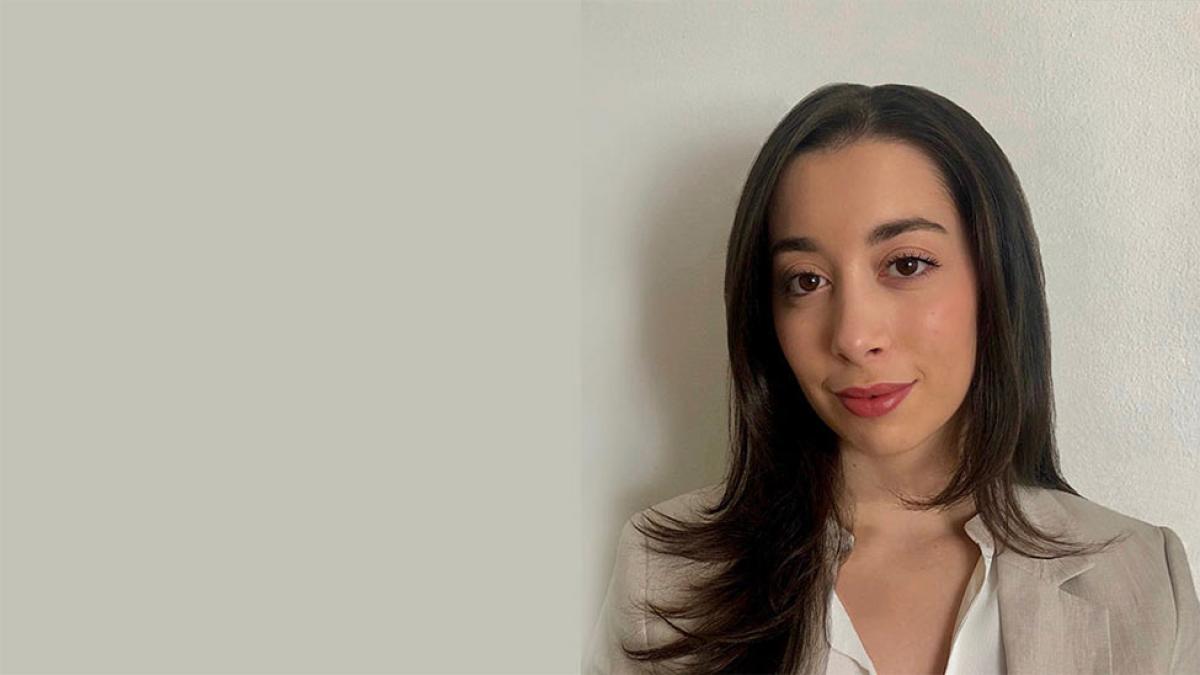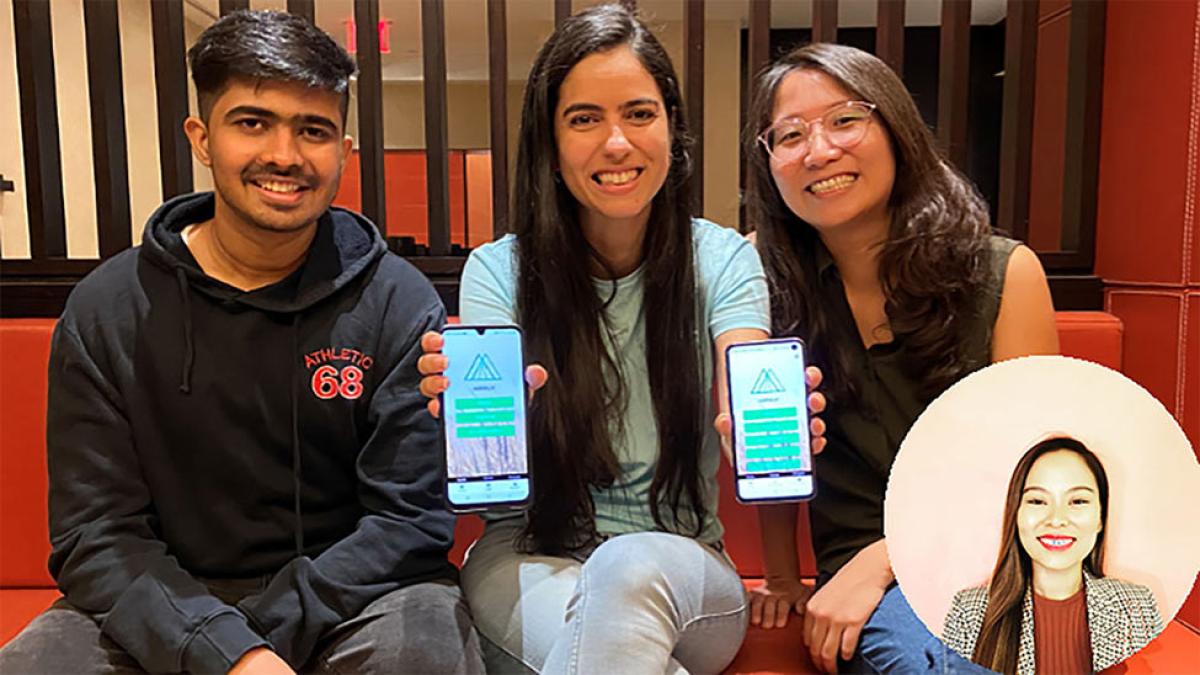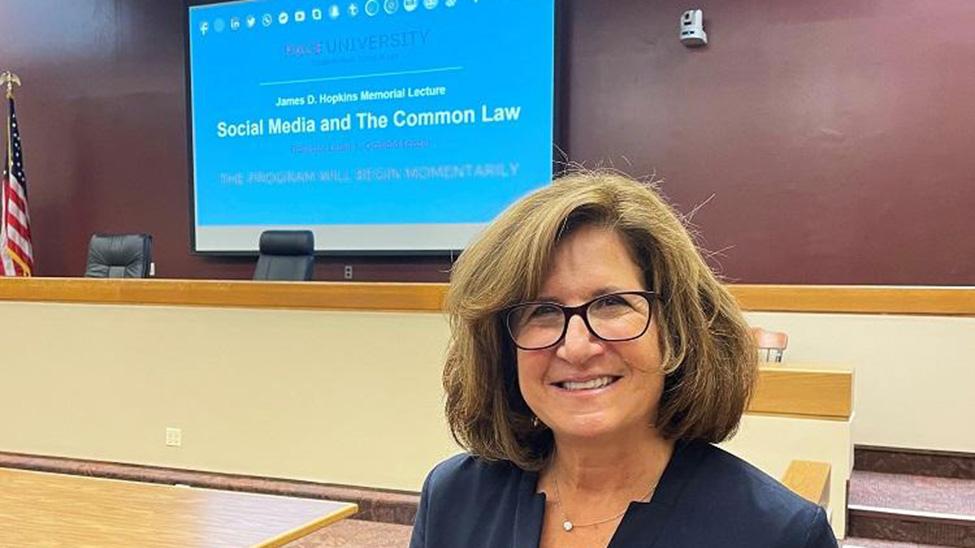
New York Daily News featured Haub Law Professor Michael Mushlin’s op-ed: “Our jail and prison shame, coast to coast”
Mushlin is a professor of Law at the Elisabeth Haub School of Law at Pace University. Conditions at the notorious Rikers Island jail complex have captured the headlines in recent days. Deaths and degradation are the order of the day there. A federal judge has intervened, ordering the city to put in place measures essential to save lives.
Professor Leslie Y. Garfield Tenzer delivers James D. Hopkins Professor of Law lecture
Professor Leslie Y. Garfield Tenzer delivered the James D. Hopkins Professor of Law Memorial Lecture on Wednesday, October 6, on "Social Media and the Common Law."
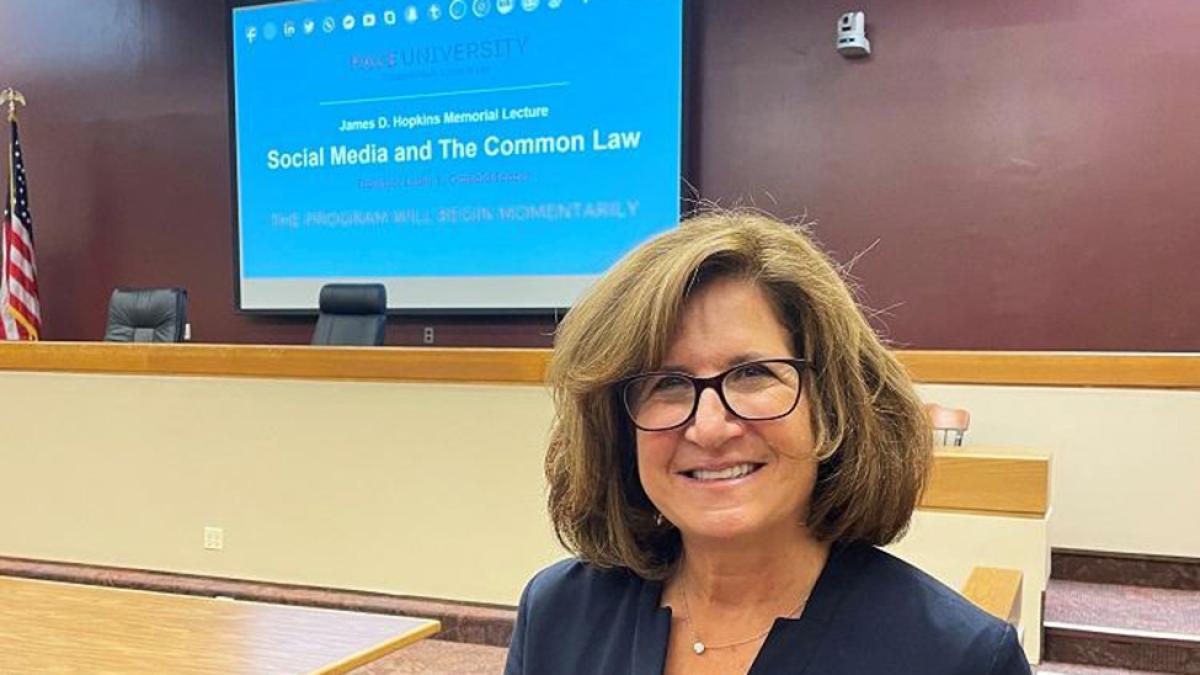

Professor Leslie Y. Garfield Tenzer delivered the James D. Hopkins Professor of Law Memorial Lecture on Wednesday, October 6, on "Social Media and the Common Law." Dean Horace Anderson appointed Professor Tenzer as the James D. Hopkins Professor of Law for the 2019–2021 term. During the holder's term, the James D. Hopkins Professor delivers a lecture that is open to the entire law school community and members of the public.
"Social Media is the technology that connects people." Professor Tenzer opened her Hopkins lecture with this statement. The lively and well-attended lecture, with over 100 audience members in person and over 80 watching remotely, was presented in three parts. The first part covered the History of Social Media, the second discussed Social Media Wrongs and the Law Courts Use to Resolve Them, and the last covered the Benefits and Burdens of Relying on Precedent. Throughout the lecture, Professor Tenzer noted that the framers of the United States Constitution and those who created the early common law were no strangers to printed media. However, they could not have anticipated the widespread ability of average citizens to communicate instantaneously with large audiences via platforms like Facebook, Instagram, and Twitter. The lecture acknowledged that despite this, these early eighteenth-century laws provide an excellent foundation for resolving issues at the intersection of social media and the legal system in the twenty-first century.
Professor Tenzer concluded her lecture by noting that "while we are losing the opportunity to regulate social media through courts – and legislators and Congress have kind of dropped the ball in acting – the one good takeaway is that our judicial system is doing what it is intended to do, which is relying on cases they have decided before in reaching its new conclusions."
After the lecture, audience members had an opportunity to comment and ask questions. Many members of the audience, including numerous law students, shared their concerns. Most questions focused on the future of litigating social media claims.
Professor Tenzer's presentation centered on much of her research agenda, which focuses on regulating conduct in the digital age. Before coming to Pace, Professor Tenzer was a legislative attorney in the Legal Division of the Council of the City of New York. At Haub Law, she currently teaches and writes in Commercial Law, including Contracts and UCC Article 2, Criminal Law, Torts and Social Media Law Law. Professor Tenzer's most recent scholarship focuses on issues concerning emotional harm and the impact of the Internet on the law. In addition to her regular teaching at Pace, Professor Tenzer is the host of Law to Fact, a podcast for law students. Professor Tenzer regularly lectures nationally, most often on issues concerning Affirmative Action and Social Media Law.
The Hopkins lecture is the culmination of Professor Tenzer’s two year endowed chair title as Hopkins Professor. The title of James D. Hopkins Professor of Law is awarded to a member of the faculty for a two-year term in recognition of outstanding scholarship and teaching. The designation is among the Law School’s most significant faculty honors. The Hopkins Professor is selected by the Dean in consultation with the former holders of the Hopkins Chair. Professor Noa Ben-Asher was appointed as the James D. Hopkins Professor of Law for the 2021–2023 term.
Leading Investment Management Firm Provides Grant for Experiential Learning at the Elisabeth Haub School of Law, Naming Its RealFi Funding Investor Rights Clinic
The Elisabeth Haub School of Law at Pace University has received a generous five-year grant to name its Investor Rights Clinic after RealFi Financial LLC, a leading, technology-driven, alternative investment management firm.
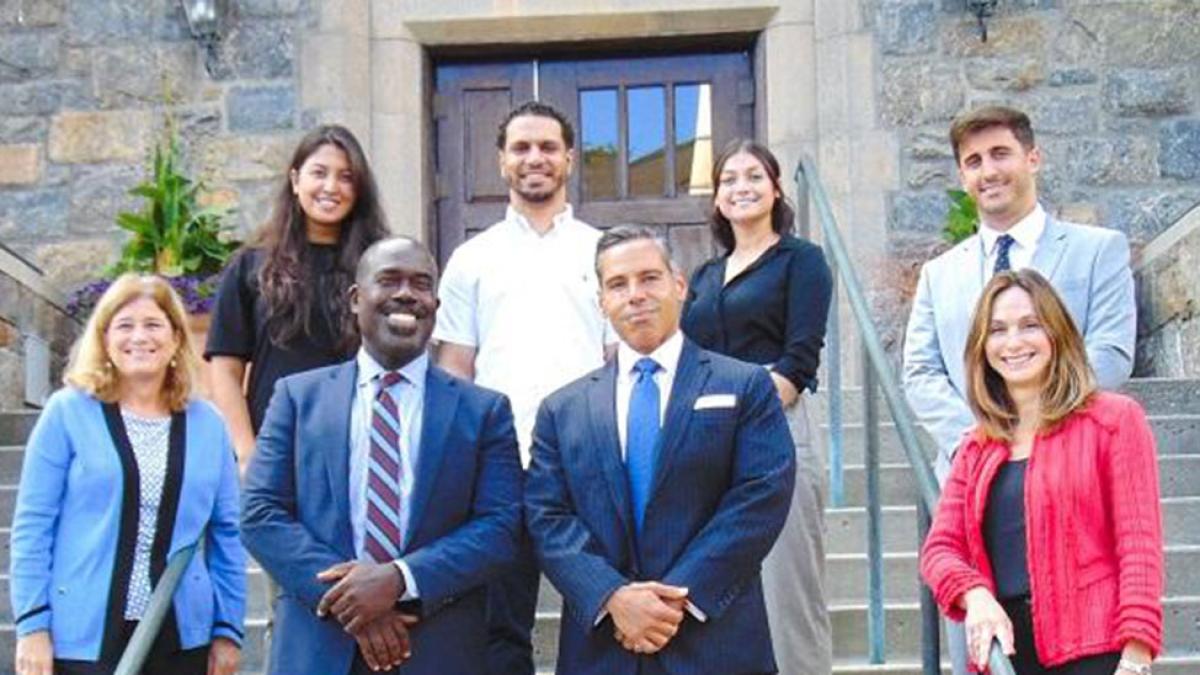
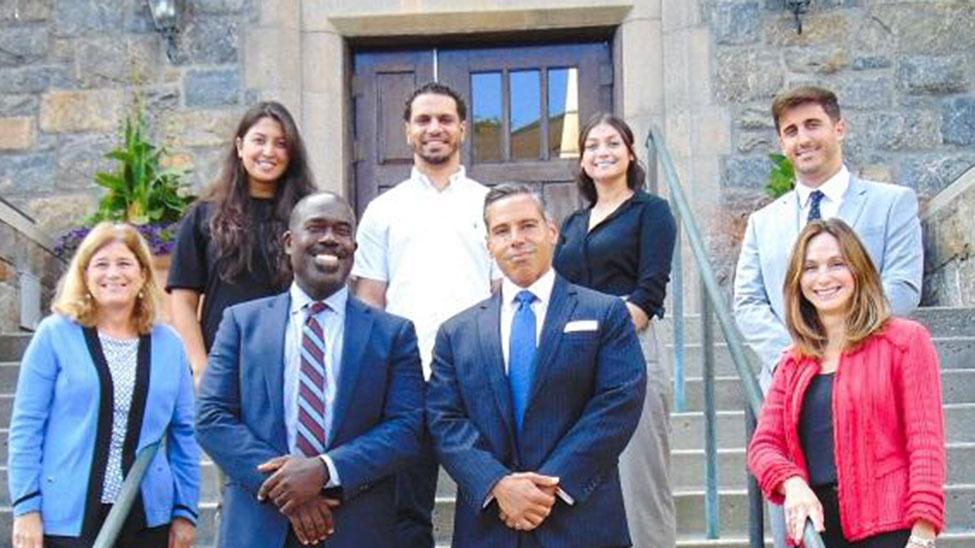
The Elisabeth Haub School of Law at Pace University has received a generous five-year grant to name its Investor Rights Clinic after RealFi Financial LLC, a leading, technology-driven, alternative investment management firm. The newly named RealFi Funding Investor Rights Clinic is recognized across the country as a leader in arbitration and securities dispute resolution, and is considered one of most unique experiential learning opportunities at the Elisabeth Haub School of Law.
For the past quarter century, the RealFi Funding Investor Rights Clinic has provided students with direct legal experience under the supervision of licensed attorneys who are not only great practitioners, but also trained in individually educating and mentoring students. The clinic makes a tremendous impact on the community by providing access to the justice system to investors of modest means otherwise unable to afford representation.
Under the auspices of John Jay Legal Services, Inc., a not-for-profit legal services firm that houses and runs the clinic and externship programs at the Elisabeth Haub School of Law, student interns in the RealFi Funding Investor Rights Clinic represent small investors with claims against their brokers in arbitration and mediation proceedings before the Financial Industry Regulatory Authority (FINRA). Since its inception, more than 200 students have participated in the Clinic, reviewing hundreds of inquiries, and handling approximately 100 cases for investors. Clinic students have secured almost $900,000 in recovered funds for their clients.
“We deeply appreciate RealFi's generous gift, which will help the clinic continue to expand its important work to bring access to justice to small investors and provide our students with additional educational and advocacy opportunities,” said Professor Elissa Germaine, Executive Director of John Jay Legal Services and Director of the RealFi Funding Investor Rights Clinic.
The grant from RealFi was inspired by its Founder and CEO John C. Lettera, who is a 1999 graduate of Haub Law and also serves as an adjunct professor at the Law School, teaching Corporate Finance to upper level students.
“Much of my success is rooted in the foundation I received at the Elisabeth Haub School of Law,” said Lettera. “I have always had a passion for teaching and am addicted to the challenge of how to get students even more engaged in learning. I can’t teach every student in the world, but I can make a difference for the ones I teach. Knowing that the impact I can have on their lives can stay with them throughout their years of schooling and beyond is incredibly inspiring. Investing and partnering with Pace is another step forward in making a difference.”
Lettera is another alumni success story for the Elisabeth Haub School of Law. He has over 21 years of legal experience and over 27 years experience in real estate debt originations and acquisitions as well as equity investing. He founded and has successfully managed two financing funds worth over $100 million. At RealFi, based in White Plains, NY, he employs 16 graduates of Haub Law, building and mentoring a management team with a diverse combination of legal, financial, management, real estate, transactional and investment skills. His teaching and philanthropic commitments are among many contributions to the law school, as he generously lends his expertise on panels and his broad network for fundraising events. In 2013, he received the distinguished Haub Law Leadership Award recognizing his support.
“John’s commitment to Haub Law is an inspiring example and we are so grateful to have his support,” said Horace E. Anderson Jr., Dean and Professor of Law at the Elisabeth Haub School of Law. “He lends his time and resources in so many ways to the school — as a teacher, expert, mentor, connector, and philanthropist. He is truly making a difference in student’s lives and this gift will further enhance the rich educational experience of our Investor Rights Clinic to put classroom learning into practice.”
About John Jay Legal Services, Inc.
John Jay Legal Services, Inc. is a not-for-profit legal services firm that houses and runs the clinic and externship programs at the Elisabeth Haub School of Law at Pace University. In our clinics, students provide direct legal representation and access to justice for clients on a pro bono basis while being supervised by clinical faculty. In our externships, students work with and learn from practicing lawyers in a variety of placements tailored to their interests. These experiential learning programs offer students the opportunity to gain real-world practical legal experience during their time at Haub Law.
About RealFi Funding LLC
RealFi Funding LLC is a leading, technology driven, alternative investment management firm with expertise in real estate credit strategies. Through its subsidiaries, RealFi is an originator of qualified and non-qualified residential home mortgages. And through the RealFi REIT— a leading real estate finance company—the firm is a direct lender focused on originating commercial real estate bridge loans in major markets throughout the United States. RealFi is recognized as one of the nation's leading mortgage and asset management companies, employing hundreds of professionals and continuing to grow exponentially.
Our Jail and Prison Shame, Coast to Coast
Professor Michael Mushlin's Letter to the Editor regarding the chaotic conditions at Rikers Island was published in The New York Times.
Using Cyberscience to Create a Safer World
When Justin Brandon was a child, he loved to take things apart to figure out how they worked. Now he’s at Pace, completing a degree in computer studies with a focus on cybersecurity and computer forensics.
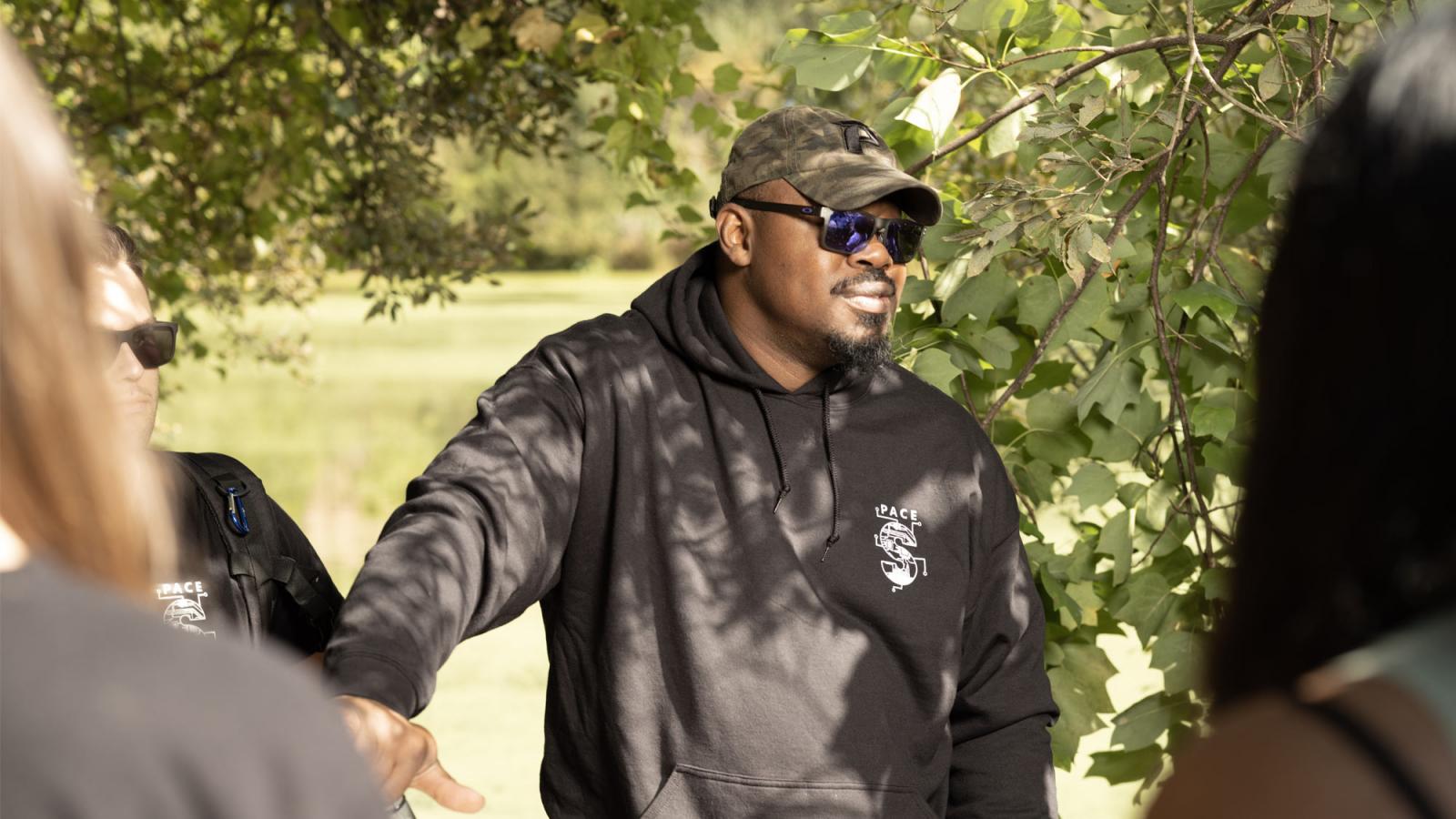
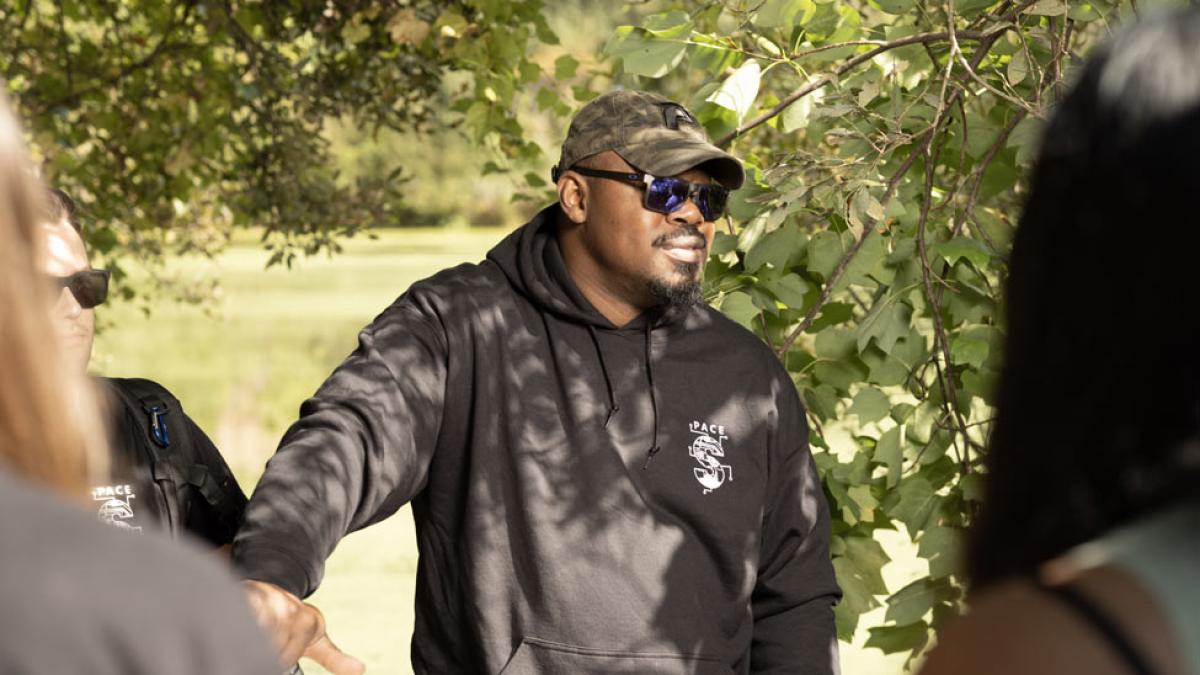
When Justin Brandon was a child, he loved to take things apart to figure out how they worked. As an eight-year-old, he got his hands on a computer and discovered that he could actually change and improve the programs. After serving in the military and working with computers in a variety of settings, Justin wanted a career where he could combine his extensive experience in computers and training. Now he’s at Pace, completing a degree in computer studies with a focus on cybersecurity and computer forensics.
One of Justin’s biggest opportunities so far has been interning in Pace’s Blue CoLab, working with teams of students who are exploring new ways to apply computer technology to protect human life. “My job involves consulting with the teams on their projects and making sure that the equipment they need—the sensors, data loggers, and water quality monitoring devices—all work together in the way that they should.” Says Justin, “They call me in to talk about the hardware, and it’s an opportunity to use my existing skills and hone new ones.”
“That experience gave me a taste of what graduate school will be like. It also taught me how to pitch my idea for a new hands-on course on white hat hacking, something I’d like Pace to offer.”
Justin also completely upgraded all of the lab’s wireless technology. And last year, he received a Summer Scholarship Grant to work with the Provost and two professors developing a new Blue CoLab curriculum that could be delivered via a remote learning platform. “That experience gave me a taste of what graduate school will be like. It also taught me how to pitch my idea for a new hands-on course on white hat hacking, something I’d like Pace to offer.”
Justin appreciates the quality of Pace’s faculty. “The instructors here have really impressive backgrounds, they work at places like IBM,” he says. “And through my electives, I’ve met professors who’ve given me opportunities to work on interesting projects outside my area, like Global Information Systems. We also have opportunities to connect with people in the industry. The Chief Technology Officer at Verizon just spoke with us about his experiences and what they’re looking for in new employees.”
Going back to school after being out in the world is challenging, but Justin says it’s worth it. “I’m learning how to collaborate with younger team members, how to be a good role model, and how to motivate others. Being at Pace has improved who I am overall.”
See More Pace People
Alphur "Slim" Willock ‘19, ‘23 knows that dedication in the face of obstacles is what it takes to get ahead. After the death of his wife, he took on the responsibility of caring for his six children while working full-time. Slim was able to fit not one, but two, online degree programs into his life—a BS in Information Systems and now an MS in Information Technology.
Maria Escobar ’22 is the co-founder of the World Without Exploitation National Youth Coalition—a network of young people dedicated to ending human trafficking—and she’s also set to present at the upcoming United Nations Commission on the Status of Women.
Manoela Nery de Morais ’20, Ajinkya Vilasrao Datalkar ’20, Chimegsaikhan Munkhbayar ’20, and Helen Tsai ’21 just won IBM’s Call for Code 2020 challenge. How did they make it big? What does it take to reach the finish line? And how did they manage to coordinate with a 12-hour time difference between them? They’ll tell you!
Professor Shelby Green appointed as Co-Counsel of the Land Use Law Center at the Elisabeth Haub School of Law at Pace University
The Elisabeth Haub School of Law at Pace University is pleased to announce that Professor Shelby Green has been appointed as co-counsel of the Land Use Law Center.
The Elisabeth Haub School of Law at Pace University is pleased to announce that Professor Shelby Green has been appointed as co-counsel of the Land Use Law Center. The Land Use Law Center (“LULC”), established in 1993 by Distinguished Professor of Law Emeritus John Nolon, was one of the first law-school based institutes in the nation whose mission was to engage communities in the movement toward more economically, equitably, and environmentally viable towns and cities – to find new ways to create and foster sustainable communities. With this appointment, Professor Green will serve as co-counsel alongside Professor Nolon.
Since joining Haub Law as a professor in 1991, Professor Green has taught courses on property, historic preservation and real estate transactions and finance. At Haub Law, Professor Green also served as the director of the LLM in Real Estate Law for several years. She continues to advise students interested in real estate law, arranging externships, and hosting panels on the curriculum and the practice.
Professor Green has published dozens of articles focusing on real estate law, the housing market, historic preservation, the housing act, housing discrimination, land use law and more. She is also the author of two books with Haub Law Professor Nicholas Robinson focused on Historic Preservation. An expert in the field, Professor Green is also a frequent presenter on the topics of real property law and real property trusts and estates. She is a member of the American College of Real Estate Lawyers and, currently, she is the editor of the “Keeping Current—Property” column in Probate & Property, a magazine published by the Real Property, Trust and Estate Law Section of the American Bar Association.
Distinguished Professor of Law Emeritus and co-counsel of the LULC, John Nolon, emphasized the positive impact that Professor Green’s new appointment would have on the LULC. “By adding Professor Green to the Land Use Law Center’s staff as Co-counsel, we both solidify and amplify what she does for our program. It formalizes the integration of the land use and real estate courses and programs and adds her considerable scholarship, engagements, knowledge, and networks to our profile. We will all benefit from this appointment, particularly students who are interested in the closely-related fields of real estate and land use law.”
The Land Use Law Center is also led by Executive Director, Jessica Bacher, Deputy Director, Tiffany Zezula, and Senior Staff Attorney, Jennie Nolon Blanchard. Executive Director, Jessica Bacher, notes, “Land use law involves the development and conservation of the land and its natural resources and with that, real property is subject to many land use regulations. Professor Green is an expert in these areas. Her work and expertise expands the capacity of the LULC and strengthens the unique role that the Center plays in the local and national land use law community.”
Prior to joining Haub Law, Professor Green worked as an associate at Nixon, Hargrave, Devans & Doyle (now Nixon Peabody), in Rochester, NY and Washington, DC, where she focused on corporate, litigation, communications, labor law, and tax matters. For many years, she served as a member of the Board of Directors of Legal Services of the Hudson Valley, White Plains, NY. She is currently a member of the Board of the John Jay Heritage Center, Rye, NY. She is also the chair of the Board of Trustees of the Brooklyn Music School. Professor Green also serves the community through her pro bono work for which she received a service award from the New York State Bar Association. She graduated with her law degree from Georgetown University Law Center.
“It is an honor to be appointed as co-counsel of the Land Use Law Center. Since 1993, the Center has made an impact on Westchester, New York State, and beyond with its unique, innovative, and researched land use law strategies. I look forward to continuing to work with the expert staff of the LULC in this new role,” stated Professor Green.
About the Land Use Law Center
Established in 1993, the Land Use Law Center is dedicated to fostering the development of sustainable communities and regions through the promotion of innovative land use strategies and dispute resolution techniques. Through the work of its programs, centers, and institutes, the Land Use Law Center offers training, technical assistance, conferences, seminars, clinics, academic law school courses, continuing legal and planning education programs, audio podcasts, and frequent publications and resources on contemporary land use, real estate, and environmental issues.
The Right To Defy an Unconstitutional Law
Professor Bennett Gershman explains why respect for law is a basic tenet of democracy and the integrity of our judicial systemin an article for the New York Law Journal.
Pace University’s Actors Studio Drama School MFA Alumni Return to Alma Mater for the First Opening of the Repertory Season Since Spring 2019
Pace University’s Actors Studio Drama School (ASDS) Master of Fine Arts Program today announced the return of its emblematic Repertory Season featuring the acting, directing, and playwriting Class of 2020 with five consecutive weeks of live performances, beginning October 20, 2021.
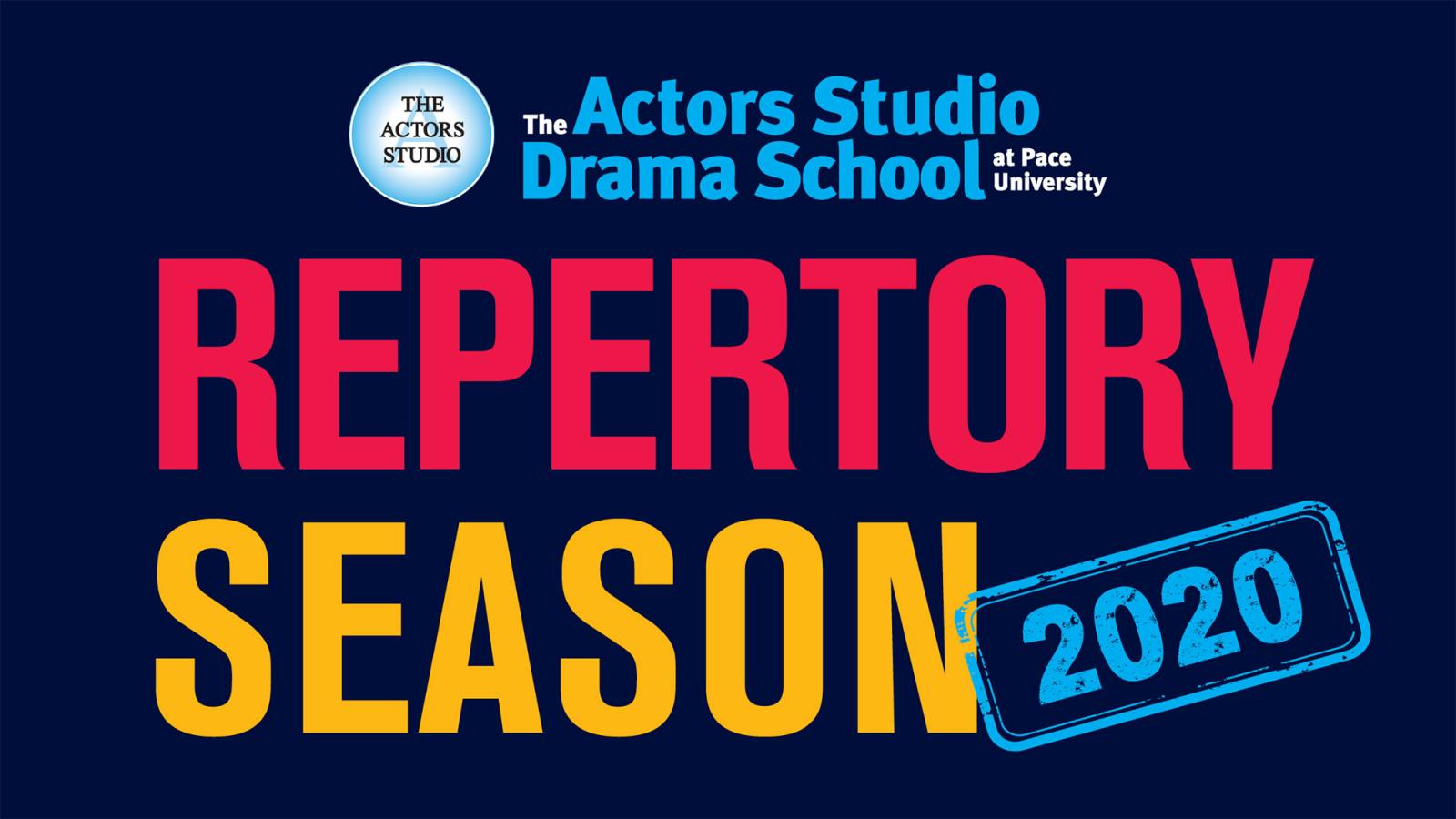
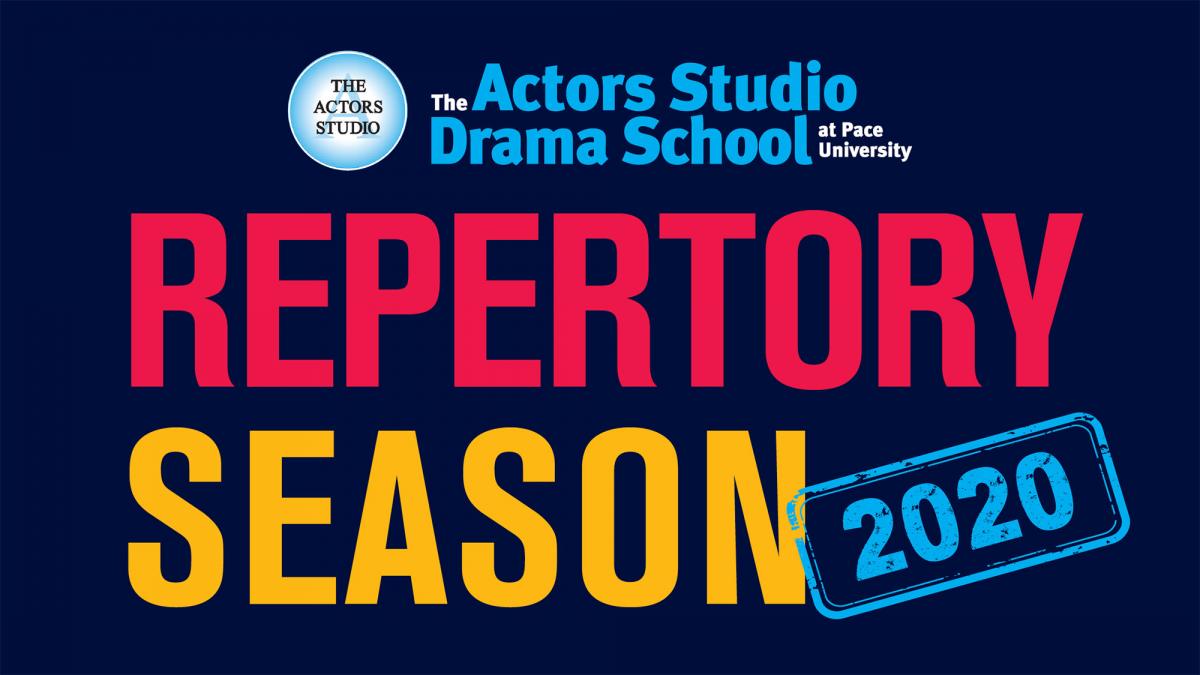
The Class of 2020 now showcase their talents in live, in-person performances.
Pace University’s Actors Studio Drama School (ASDS) Master of Fine Arts Program today announced the return of its emblematic Repertory Season featuring the acting, directing, and playwriting Class of 2020 with five consecutive weeks of live performances, beginning October 20, 2021.
As the arts and entertainment industry resumes live performance, the ASDS Repertory Theater in lower Manhattan reopens for the first time since April 2019 and welcomes in-person audiences at 70% capacity. The venue will follow industry standards as well as New York State and local COVID-19 safety protocols.
“This is a thrilling moment of colossal significance with an unprecedented level of collective engagement. Our alumni’s passion, talent, training, and dedication will be in full display. They have great stories to tell, and we look forward to our audiences returning to see them,” says Cosmin Chivu, chair, Actors Studio Drama School MFA program.
“We are delighted that our talented MFA alumni will be back on stage in front of live audiences after a two-season hiatus. The Repertory Season is an exciting culmination of their training in the program and something we eagerly anticipate at Pace University,” says Bette Kirschstein, PhD, associate dean, Dyson College of Arts and Sciences.
The five-week Repertory Season consists of ten productions directed by ASDS alumni Jessica Francis Fichter, Sarah Lang, and Amy Woschnik and includes four original plays by ASDS alumni Brett Goldberg, Joris De Graaf, Jay Gulotta, and Timothy Nolan.
The acting company features ASDS alumni Elisa Alemparte, Myrna Dahdah, Victor Del Ray, Delaney Duquesne, Zachary Glassman, Jimena Herrero, Rose Kanj, Brenden MacDonald, John McPhee, Jamie P, Samuel Pygatt, Dan Pavacic, Chip Rybak, Lillie Ricciardi, Ryan Swartz, Clara Tristan, Jes Washington.
The creative team includes Set Designer Shawn Lewis; Projections Designer Yana Birÿkova; Sound Designer Sean Hagerty; Lighting Designer Ethan Steimal; Costume Designer David “DW” Withrow; Props Supervisor Mecca McDonald; and Costume Designer Jennifer Paar. The General Management company is Brierpatch Productions.
The Repertory’s production schedule is as follows:
- October 20–23 – “North Carolina,” by Brett Goldberg, and “Dog Sees God,” by Bert V. Royal.
- October 27–30 – “Danny and the Deep Blue Sea,” by John Patrick Shanley and the musical, “John & Jen,” music by Andrew Lippa, lyrics by Tom Greenwald, book by Lippa & Greenwald.
- November 3–6 – “The Sugar Plant,” by Timothy Nolan, “God Machine,” by Joris De Graaf, and “Roger and Vanessa,” by Brett C. Leonard.
- November 10–13 - “Salacious Sins,” by Jay Gulotta and “Election Day,” by Josh Tobiessen.
- November 17–20 – “Hope and Gravity,” by Michael Hollinger.
When: Wednesdays through Saturdays at 7:30 p.m.; Saturday matinees at 3:00 p.m..
Where: ASDS Repertory Theater, 80 Greenwich Street (between Rector and Edgar Streets), New York, NY, 10006.
Admission is free.
About the Repertory Season
The purpose of the Repertory Season is to facilitate a professional experience, as students in their graduating year work with professional designers, stage managers, production companies, and benefit from the response of real audiences. While many events and educational programs impacted by the COVID-19 pandemic that started in early 2020 were shifted to a successful online and nontraditional instruction, the Repertory Season, after a two-season hiatus, is now happy to be back live.
About the Actors Studio Drama School
Located at Pace’s New York City campus and housed within the Dyson College of Arts and Sciences, the three-year MFA program offers three distinct tracks: Acting, Directing, and Playwriting. The curriculum is built on the philosophy and the tradition of the Actors Studio and the foundation of the Stanislavsky System. Acting, directing, and playwriting, students are trained side-by side and guided by the pedagogical approach of our distinguished faculty, toward the discovery of their unique voice and full manifestation of their talent. Upon graduation, students receive the title of ‘Finalist’ at The Actors Studio and are invited to attend sessions there for one post-graduate year prior to auditioning for lifetime membership. Directing and Playwriting students are also invited to participate in the Playwright/Director’s Workshop in New York for their post-graduate year.
About Dyson College of Arts and Sciences
Pace University’s liberal arts college, Dyson College, offers more than 50 programs, spanning the arts and humanities, natural sciences, social sciences, and pre-professional programs (including pre-medicine, pre-veterinary, and pre-law), as well as many courses that fulfill core curriculum requirements. The College offers access to numerous opportunities for internships, cooperative education and other hands-on learning experiences that complement in-class learning in preparing graduates for career and graduate/professional education choices. .
About Pace University
Pace University has a proud history of preparing its diverse student body for a lifetime of professional success as a result of its unique programs that combine immersive academics and real-world experiences. Pace is ranked the #1 private, four-year college in the nation for upward economic mobility by Harvard University’s Opportunity Insights, evidence of the transformative education the University provides.
Fox Business- Twitter featured Dyson Professor Darrin Porcher in “Mornings with Maria
“Pace University’s Dr. Darrin Porcher tells Maria Bartiromo the Manhattan District Attorney's directive not to ask for bail in many nonviolent cases is "purely political."
AmericanBar.org featured Haub Law’s Lauren Bachtel piece “You've Come a Long Way, Baby! Or Have You?”
Elisabeth Haub Law Lauren Bachtel co-authored an empirical analysis, noting there is much work to be done to achieve gender equity in the environmental bar.
